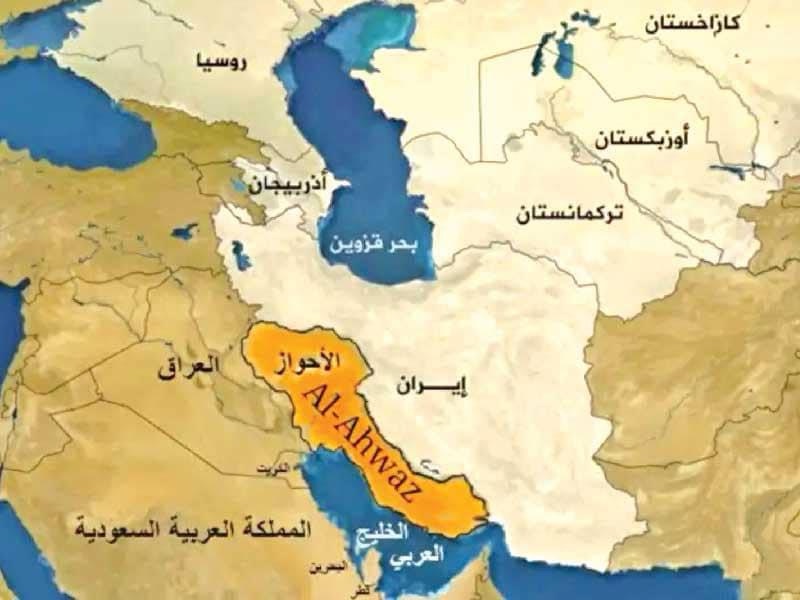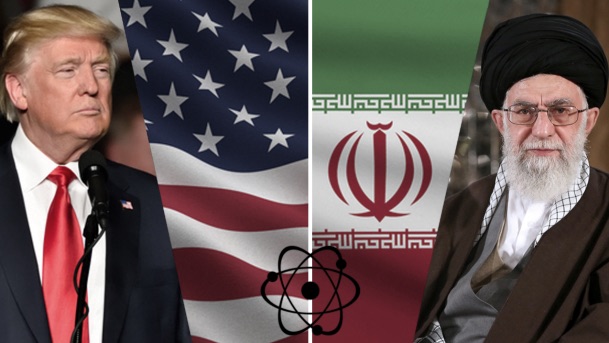
Ahwazi Political Situation: Between Marginalization and Missed Opportunities
As events unfold in the region, a complex reality emerges, requiring political forces to act wisely to capitalize on significant changes. One prominent development is the ongoing Israeli strikes against Iran and its militias, signaling potential internal shifts within Iran. Despite these challenges and opportunities, Ahwazi political efforts remain below the level needed to make tangible progress on the regional and international stages.
Potential of the Ahwazi National Movement: An Unutilized Opportunity
Major events like the ones we’re witnessing now represent a golden opportunity for the Ahwazi national movement, which seeks independence and sovereignty over its homeland. The Ahwazi issue, rooted in decades of occupation by the Iranian regime, deserves a prominent place on the international political agenda at this critical moment. Israel’s repeated attacks and the increasing weakness of the Iranian regime open a window for the Ahwazis to elevate their cause internationally.
Israel, by targeting Tehran’s militias, sends a clear signal of a genuine desire to weaken or possibly change the Iranian regime. Yet Ahwazi factions show a marked decline in political and organizational effectiveness, risking marginalization. Rather than seizing this opportunity to engage with regional and international powers and position the Ahwazi cause as a fundamental part of the equation, Ahwazi efforts remain fragmented and disorganized.
U.S. Statements Against the Iranian Regime: Another Political Opportunity
Amid growing international pressure, the United States has been a staunch critic of the Iranian regime. Repeated statements from U.S. officials call on Tehran to curb its behavior, particularly its support for armed militias in the region and its interference in neighboring countries’ affairs. These statements coincide with a series of economic and political sanctions aimed at reducing Iran’s regional influence and limiting its actions. U.S. pressure is not merely an attempt to alter Iran’s behavior abroad but also represents growing internal pressure on a regime suffering from severe economic crises.
The Ahwazis now face a strategic opportunity to take advantage of this ongoing American pressure. The Iranian regime, facing both internal and external challenges, may be more vulnerable to collapse or retreat, making this an opportune moment for Ahwazis to escalate their demands. However, this requires a cohesive political movement capable of presenting itself as a legitimate party in any future negotiations or political change.
Exploiting Opportunities to Achieve Political Gains: The Theory of Possible Gains
Given the current situation, Ahwazi factions must adopt a pragmatic approach to capitalize on political opportunities for incremental gains. This theory is based on continuous, pragmatic engagement with international and regional dynamics to achieve small victories rather than waiting to attain large objectives all at once. This theory can be summarized in the following points:
1. Diplomatic Engagement with International Powers: Utilize U.S. and international pressure on Iran to highlight the Ahwazi issue. Rather than solely focusing on independence, Ahwazi parties could demand expanded autonomy and an easing of the economic and cultural oppression imposed on Ahwaz as an initial step.
2. Regional Alliances: Strengthen ties with Arab countries affected by Iranian interference, such as Saudi Arabia and the UAE, and leverage these relationships to gain greater support for the Ahwazi cause on the international stage. The Arab sphere, including the Arab League, could be an effective support for the Ahwazis if this international momentum is properly harnessed.
3. Political Flexibility: The Ahwazis need to move beyond internal divisions and adopt a unified political vision that is adaptable to changing circumstances. This flexibility involves the ability to negotiate and achieve short-term political gains while maintaining the long-term pursuit of major goals.
4. Media and International Pressure: Intensify media efforts to highlight the suffering of the Ahwazi people, and leverage international positions hostile to the Iranian regime as a platform to showcase the violations faced by the Ahwazis.
Weakness of Ahwazi Factions: Risk of Marginalization
The clear weakness in the Ahwazi movement raises concerns about the future. Traditional Iranian opposition groups, whether inside or outside Iran, will seek to fill the political vacuum if the Iranian regime weakens or falls, which could marginalize and undermine the Ahwazis’ role in any political change. The lack of a clear strategy among Ahwazi forces, coupled with the absence of coordination between various factions, makes it difficult for them to have a significant impact on ongoing events.
Ahwazis and Future Building: The Need for Vision and Strategy
The Ahwazis must recognize that this stage is one of the most critical in their history. The future may hold significant changes in Iran, and they cannot remain on the sidelines. They need to rally around a unified vision and build a clear political strategy that aligns with geopolitical shifts in the region. The Ahwazis should be part of any change equation in Iran, whether by coordinating with non-Persian peoples or building bridges with international powers.
It is also crucial for the Ahwazi movement to reconnect with the Arab sphere, as the support of Arab countries could be pivotal in advancing the Ahwazi cause. Arab countries, which also suffer from ongoing Iranian intervention, may see supporting the Ahwazi cause as a means to pressure and weaken the Iranian regime. This opportunity should be seized, but it will not materialize without concerted efforts from Ahwazi factions to build the necessary political and diplomatic alliances.
Conclusion: The Necessity of Collective Action and Seizing Opportunities
The challenges facing the Ahwazi movement today are substantial, but so are the opportunities. The world is witnessing rapid changes, and any movement that cannot adapt to these changes will find itself marginalized. Therefore, the Ahwazis must unite, consolidate their vision, and work tirelessly to build a political future that guarantees them a role in any potential change in Iran. International pressure, whether from the United States or regional countries, represents a real opportunity that the Ahwazi movement must leverage to achieve tangible political gains.
